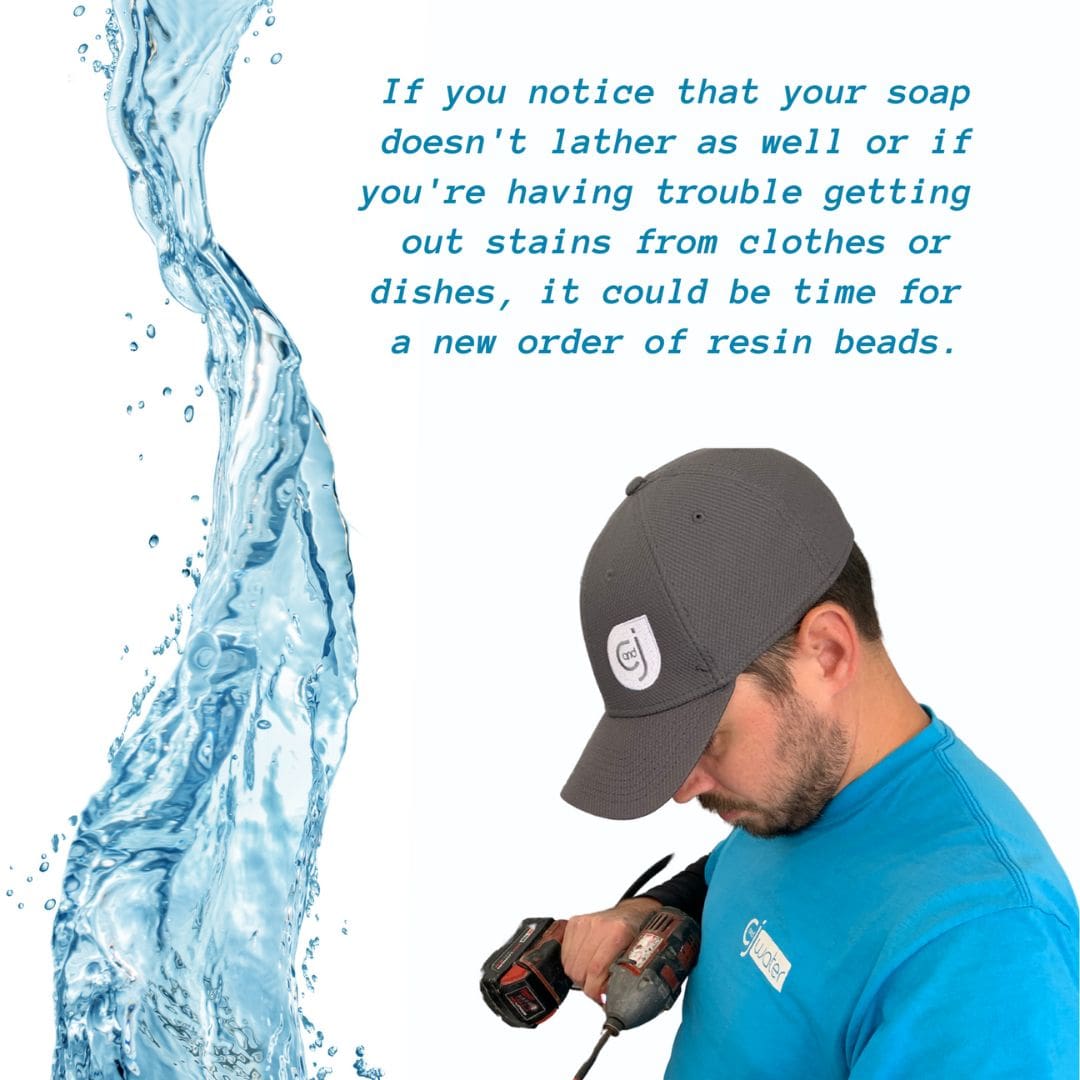If you’ve got a water softener in your home, you may wonder when it’s time to replace the resin. The fact is that different types of water softeners require different replacement schedules. However, there are some general guidelines that we can tell you about to help determine whether or not your resin is breaking down. Let’s go over what softener resin is, what it does, and when you should consider replacing it.
What is softener resin, and what does it do?
The resin acts as a filter in your water softener. It’s made up of small beads that attract and hold onto minerals like calcium and magnesium during the ion exchange process, which would otherwise make the water hard. These minerals are left behind when you use your water after the softening process, so they won’t end up clogging up your pipes or appliances.
Resins come in different sizes, depending on how large the household is. Each type has a different lifespan; for example, some resins last between five to seven years, while others have even longer lifespans—upwards of 15-20 years.
Resin beads will become pitted or eroded, eventually failing to do their job.
Over time, your water softener’s resin beads break down. Resin is a tiny plastic bead mixed with the media in your water softener. The beads capture and hold on to hardness minerals like calcium and magnesium so they can be removed from your water, leaving it softer and cleaner.
Eventually, resins become increasingly ineffective at removing hardness minerals. If you notice that your soap doesn’t lather as well or if you’re having trouble getting out stains from clothes or dishes, it could be time for a new order of resin beads.
Replacing a failed resin bed can seem daunting at first, but with some simple steps, you can perform this task yourself without calling in a professional plumber or contractor.
How do you know if the resin needs to be replaced?
As you use your water softener, the resin beads inside the unit will get used up and need to be replaced. There are several signs that it might be time for a new resin:
- You notice a decrease in water quality, such as a strange taste or odor.
- The condition of your pipes or fixtures has changed since you installed them (e.g., rust, leaks).
- Your water use is normal, but your costs are going up.
You notice a decrease in water quality.
Another way to tell if your water softener needs a new resin is if you notice a decrease in water quality. For example, maybe the taste or smell of your water has changed—this could be due to buildup on one of the many parts inside your softener. Another sign is when you notice that it takes longer for dishes to rinse clean or clothes aren’t as white as they used to be after washing them in softened water. If you’re using filtered or bottled water for drinking because of taste or odor concerns, then it’s time for a replacement.
If any of these indicators sound familiar and have been going on for at least six months without stopping, then there’s likely something wrong with your softener’s resin.
There’s a strange taste or odor in your drinking water.
If you notice a strange taste or odor in your drinking water, it could be due to the resin in your water softener. Manganese, chlorine, iron, and other minerals can cause bad taste and odors in drinking water. If it’s not the resin that needs to be replaced, then it could be the filter cartridge that needs replacing.
The condition of your pipes or fixtures has changed.
Your water softener system helps to prevent minerals from building up in your pipes, fixtures, and appliances. If the resin inside your water softener tank becomes damaged or loses its ability to function properly, it may be time to replace it. The following are signs that indicate you may need a new resin:
- The condition of your pipes or fixtures has changed. If they appear corroded or leaking or have become discolored or warped, then chances are good that it’s time for a replacement. You might also consider checking with a plumber when looking for help identifying signs of damage in these areas so that you can avoid future problems with leaks from hidden corrosion issues. If there was any damage caused by water pressure fluctuations during installation—for example, due to an improper installation technique—then this could also lead to excessive wear on certain parts within your system over time.
Your water use is normal, but your costs are going up.
If your water use is normal but costs increase, you may have worn-out resin. If you have a broken or worn-out resin, the softener will still remove the hardness from your water—but it will take more salt to do so. As a result, your bill will increase even though there doesn’t seem to be any noticeable difference in the quality or taste of your drinking water.
If you suspect the resin in your water softener is breaking down, contact us to schedule a service call.
If you suspect the resin in your water softener is breaking down, contact us today to schedule a service call. Water softeners need to be serviced regularly, and depending on how often you use your system and what type of water you have, it may be time for a replacement. Water softener resin can last as long as 10+ years, depending on usage and other factors.
Also, the resin can be refreshed instead of replaced. Winter is a great time to invest in preventive maintenance—check out our special deal on a water softener tune-up. We will check your softener’s performance and analyze your water for TDS, pH, and more. This tune-up includes a resin refresh, an filter change (if applicable), and two bags of salt. It’s everything you need to have the peace of mind that your water softener is working properly.
If you think it’s time to replace your resin, we can help you. Call us today, and a service representative will contact you soon. We’ll take the guesswork out of upgrading and installing new equipment by providing expert advice on all aspects of water treatment. With our experience dealing with water in Central Indiana, we know how to diagnose problems, so they don’t happen again.







